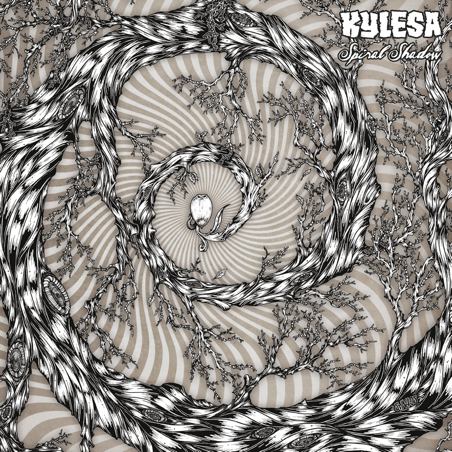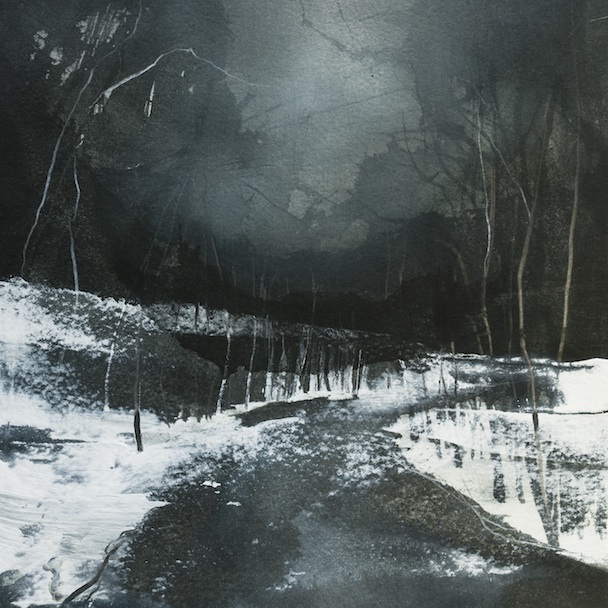
Yep, new records, new reviews. No time for further explantion. Dig!
 Kylesa – Spiral Shadow (Season of Mist)
Kylesa – Spiral Shadow (Season of Mist)
Last year, Kylesa released the pugilistic, kinetic, massively thrilling Static Tensions, an immediate stunner that would go on to become one of the best albums of 2009. Still, in many quarters it was overshadowed, specifically by Baroness’ magnificent and superlative Blue Record. The comparisons were justified, if mostly superficial: Both bands are from Savannah, Ga.; both bands play a melodic and progressive form of sludgy, psychedelic metal influenced by the likes of Mastodon, Neurosis and Kyuss; both bands feature album artwork by John Dyer Baizley, who also happens to be the frontman of Baroness. Blue Record was probably better than Static Tensions—it’s simply more nuanced, more significant, more daring—but no fan of one had any business ignoring the other. Spiral Shadow may be Kylesa’s attempt to grab back the spotlight they seemed to lose last year, or it may be a natural and organic artistic progression wholly unaffected by the more-heralded work of their peers, but either way, the album is a bold step forward into new aural worlds heretofore not even suggested in Kylesa’s catalog, much less explored. Rather than straightforward battery, the band has found great new depths in their sound, added countless new layers. Longtime fans may feel put off—the tuneful experiments on display here sometimes bring the music to the verge of alt rock—but this fan finds the whole thing to be immensely satisfying and rewarding. Spiral Shadow feels like a big album—it builds on oceanic riffs and tribal drums, adding spaced-out, spidery guitars, pummeling breakdowns and full-bodied, textured vocals (leaning equally on both frontpersons Phillip Cope and Laura Pleasants, which gives the proceedings an especially varied feeling). It never doesn’t sound like Kylesa—the band’s speed and power combine to form one of contemporary popular music’s more intoxicating sensations—but as the record bucks dogma and ventures forcefully into unexpected new straits, such as on the churning Pixies-esque “Don’t Look Back,” it sounds like Kylesa have taken an important step forward, one that may not initially win over old fans, but should, over time, come to be remembered as a breakthrough. 9/10
If you’ve been following Jose Gonzalez since the beginning, you’ve probably lost interest in him by now. That’s not unacceptable. At first, of course, it was impossible not to be taken with him. In 2003, when the Swede’s first album, Veneer, was released in his home country, he was an absolute unknown in this part of the world; even in 2005, when it was finally released here, he was a fairly mysterious character: His fragile, beautiful music sounded at once timeless and atavistic and lost, built on bossa nova, folk and jazz, like some tragic Nick Drake- or Arthur Verocai-type pop bard whose long-forgotten contributions had been unearthed after decades of being boxed up and forgotten. Quickly, though, those layers of dust and mystery were scrubbed away and Gonzalez’s music was featured prominently on crap TV like Numb3rs, Bones and One Tree Hill, not to mention a Sony Bravia commercial. Gonzalez quickly commodifed his sound and abandoned his cool and became sort of an indie Colbie Caillat in the process. Still, to his credit, his music hasn’t actually gotten any worse, and if anything, he’s taken a few strides to regain some control of his image. Case in point, bringing back his old band, Junip, which was formed back in the early days, before anybody knew who Jose Gonzalez even was. In 2005, Junip released the lovely, if minor, Black Refuge EP, and then…disappeared. (That disappearance dovetails nicely with Gonzalez’s burst into the mainstream.) In 2010, though, Junip seems to be Gonzalez’s primary artistic outlet: Already this year, he’s released two new Junip works, the Rope and Summit EP and now the band’s first LP, Fields. That Gonzalez is working under the Junip moniker may serve to illustrate just how far he’s trying to distance himself from his own name, because frankly, nothing here sounds all that different than his solo work. Which is a good thing, indeed. Gonzalez has a lulling, honeyed vocal instrument that casts every word against a gorgeous backdrop of midnight stars; he plays a supple and deceptively challenging guitar. Both those comparisons probably (again) call to mind Nick Drake, which is a perfect reference point, though Gonzalez’s music is darker than Drake’s; it has tones of not just sadness but violence along with its attendant joy and wonder. Fields does offer more robust constructions than those found on Gonzalez’s skeletal solo records, but it’s never unclear to whom these songs belong. Still, if Gonzalez feels the need to obscure his identity in order to continue crafting such delicate and detailed music, I won’t hold it against him. And while I won’t say that anyone who jumped ship way back when should climb aboard now, I will say I’m happy he’s managed to keep me interested after all this time. 8/10







